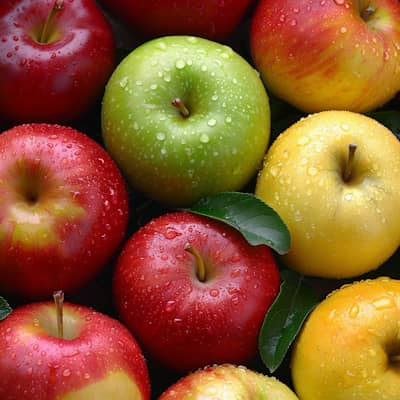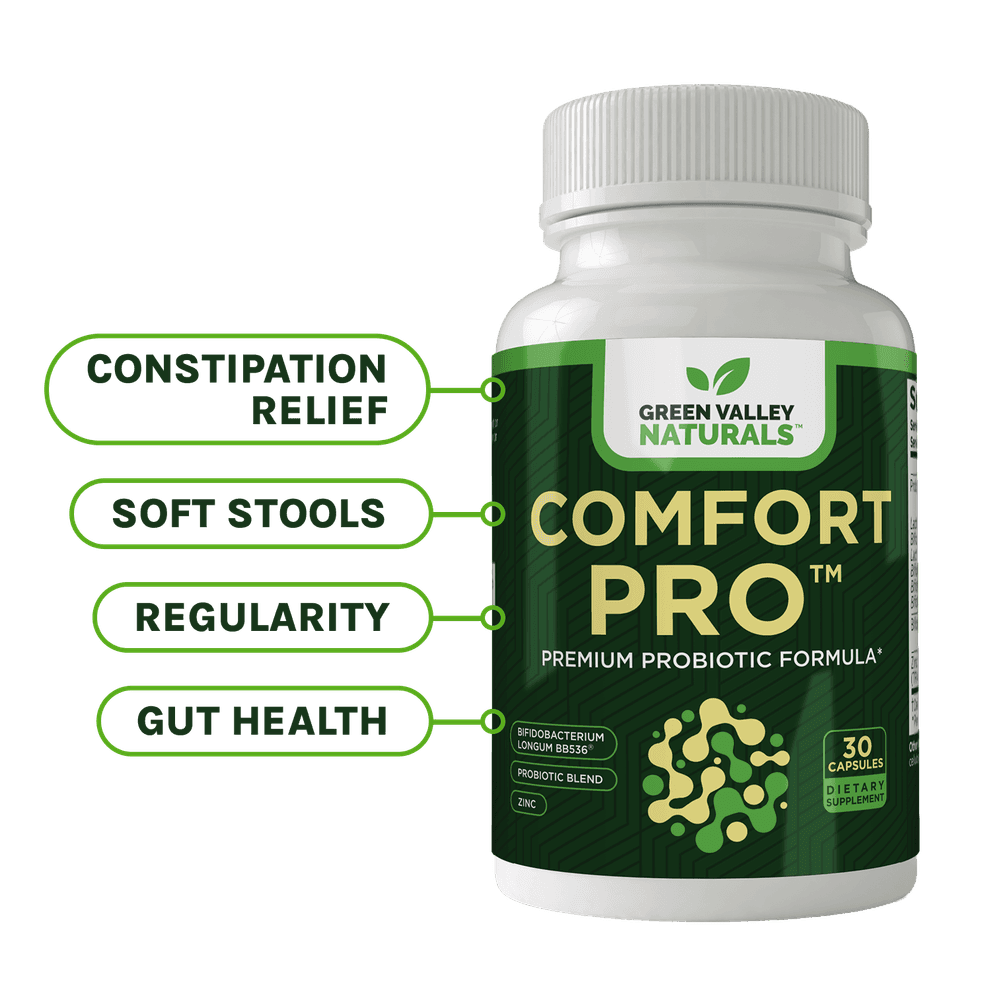
If you want to achieve optimal health, probiotics are a good place to start.
You need the help of these good bacteria – probiotic bacteria – that live in your digestive tract. And the importance of these beneficial bacteria has garnered a lot of attention over the last decade.
And now, researchers have discovered specific foods that contain more of these helpful “bugs” than were first suspected. It turns out that raw foods are richer in beneficial bacteria than anyone ever knew.
Let's take a look at the reasons why raw food is a probiotic powerhouse for a longer life. Plus, you'll discover how easy it is to make raw food a part of your everyday diet and get a tummy-- and body-- full of amazing health benefits.
Key Takeaways
- Probiotics are live bacteria known to improve digestion, immunity, and overall health.
- Recent research highlights the abundance of probiotics-- and prebiotics (a starch probiotics need to grow) in raw fruits and vegetables, particularly organic varieties.
- Adding more raw foods to your diet, even without fully adopting a raw food lifestyle, can significantly contribute to gut health and overall well-being. So, enjoy diverse fruits and vegetables in their natural state for a probiotic boost.
Probiotics Do More Than Improve Gut Health

Probiotics are live microorganisms and proteins that, when consumed in adequate amounts, provide numerous health benefits which include improved:
-
Digestive Health: Probiotics can help relieve diarrhea, constipation, and stomach pain. They also aid in keeping your bowels on a regular schedule.
-
Immune Function: They help fight off unfriendly microorganisms and boost immunity against infections.
-
Inflammation Levels: Probiotics have been linked to reducing inflammation in the body.
-
Intestinal Health: They can improve intestinal health and alleviate symptoms of lactose intolerance. Probiotics have also shown promise in preventing antibiotic-associated diarrhea, treating infant colic, and maintaining remission in ulcerative colitis.
These health benefits are thought to result from the ability of probiotics to restore the natural balance of gut bacteria, promoting a healthy gut microbiome and supporting various body systems. So, it's no wonder that nourishing your body's probiotic bacteria and promoting a healthy gut microbiome is one of the secrets to living to 100 in good health.
Different Types of Probiotics
The most common types of probiotics belong to the genre Lactobacillus and Bifidobacterium. These probiotics are found in various fermented foods such as yogurt, some cheeses, and pickled vegetables. They can also be consumed through dietary supplements.
Other types of probiotics include certain strains of Streptococcus, Saccharomyces, Enterococcus, Escherichia, and Bacillus. Each type of probiotic microorganism has different effects on the body, and their benefits are strain-specific. For instance, each of these probiotic strains supports digestive health in unique ways, from combatting gas to constipation, but it's only the beginning:
-
Lactobacillus protects the intestinal lining, aids in the digestion of fatty acids, improves the immune system, manages cholesterol levels, prevents cold and flu symptoms, and reduces symptoms of skin rashes such as eczema.
-
Bifidobacterium boosts your immune system and helps lipid metabolism, so it can help you maintain a healthy weight.
-
Streptococcus thermophilus also boosts the immune system, reduces inflammation, supports digestion of dairy, and improves cholesterol levels.
-
Saccharomyces boulardii, a probiotic yeast, is also known for its efficacy in treating various gastrointestinal diseases and can protect the normal microbiota of the human gut. It has been found to inhibit the growth of pathogenic microorganisms, reduce the pathogenicity of Candida albicans (that causes yeast overgrowth), and protect against traveler's diarrhea.
-
Enterococcus faecium, a probiotic bacterium, is also known to reduce inflammation in the gut, boost the immune system, and reduce cholesterol levels.
-
Escherichia coli (E. coli)-- yes, E. coli-- can be dangerous, but certain strains naturally present in the gut are helpful. Research has shown that these good strains of E. coli can help cells absorb iron, which is essential for addressing iron deficiencies and preventing anemia.
-
Bacillus probiotics, such as Bacillus coagulans, can improve the immune system, support the digestion of the milk protein lactose, and offer antioxidant protection in the digestive system.
While many people consume their probiotics in supplements and fermented foods, they don't realize that eating a raw diet or even just raw foods can naturally increase probiotic levels in the gut and combat health issues.
Raw Foods: Overlooked Dietary Heroes

Raw foods are mainly unprocessed, whole, plant-based foods, eaten in their natural state, either completely raw or heated at very low temperatures.
The rationale behind eating raw food stems from the belief that cooking destroys digestive enzymes and essential nutrients in food, and that consuming food in its raw state maximizes its health benefits.
What is a Raw Food Diet?
A raw food diet involves consuming mostly or entirely uncooked and unprocessed plant-based foods. This typically includes fruits, vegetables, nuts, seeds, sprouted grains and legumes, with some variations allowing fermented foods or low-temperature processed options like dried fruits. The diet provides ample vitamins, minerals, antioxidants, digestive enzymes, and essential fatty acids and protein.
Of course, very few Americans eat a truly raw food diet. In fact, according to research on what Americans eat everyday, fewer than one in ten of us eat a sufficient amount of fruits and vegetables on a daily basis. Worse? In that group an even tinier fraction consume their fruits and vegetables raw.
Sadly, when most Americans skip raw fruits and vegetables, they are omitting rich sources of healthful nutrients. That's not news. But this is: They're also missing out on high levels of probiotics. These friendly little microbes help your immune system fight off disease, they support better brainpower and emotional health, they rev up your absorption of critical nutrients, they can help your body fight against cancer and may even help keep your weight down.
"Wealth" of Probiotics in Raw Food Diet
One of the studies on a raw food diet that demonstrates the wealth of probiotic bacteria in raw foods was performed at the Graz University of Technology in Austria. It was there that researchers analyzed the microbiome (the collection of live bacteria) contained in one of the most popular fruits – the apple.
In this analysis, researchers examined the bacteria in both conventional apples (grown with pesticides) and organic apples that are not doused with chemicals. They found that both types contain about the same amount of bacteria – about 100 million bacteria.
But they found important differences...
The organic apples were home to a much greater diversity of bacterial types. That diversity, say the researchers, make the bacteria from organic apples healthier. The variety of bacteria limits the potential overgrowth of harmful bacteria that could cause problems in the digestive tract.
Organic Apples vs. Conventional Apples

“Freshly harvested, organically managed apples harbor a significantly more diverse, more even and distinct bacterial community, compared to conventional ones,” says researcher Gabriele Berg, Ph.D. "This variety and balance would be expected to limit overgrowth of any one species, and previous studies have reported a negative correlation between human pathogen abundance and microbiome diversity of fresh produce.”
In addition to that, the study showed that bacteria that can be harmfully pathogenic are more likely to be found in conventional apples. These tests found none in organic apples.
“Escherichia-Shigella – a group of bacteria that includes known pathogens - was found in most of the conventional apple samples, but none from organic apples,” says Dr. Berg. “For beneficial Lactobacilli – of probiotic fame – the reverse was true.”
Boosting Your Overall Health with Raw Food
A raw diet isn't for everyone, and we're not recommending you eat one. However, all of us can and should consume more raw foods within our daily meals. In fact, we believe a balanced diet should contain some elements of a raw diet. And the examples of raw food rich in probiotics and other nutrients might surprise you.
Examples of Raw Food
Raw food goes beyond fruits and vegetables and includes:
-
Fruits: Apples, bananas, pears, berries, mangoes, and citrus fruits.
-
Vegetables: Carrots, cucumbers, bell peppers, leafy greens, and tomatoes.
-
Nuts and Seeds: Almonds, cashews, walnuts, chia seeds, and flaxseeds.
Legumes: Some legumes can be eaten raw after sprouting, such as lentils, mung beans, and chickpeas.
-
Dairy and Alternatives: Raw milk, raw cheese, and nut-based milk. You can also get ample muscle-building protein from whey products.
-
Meat and Fish: Some people on a raw food diet consume raw or dried meats and fish, but these aren't a good source of probiotics and can only be consumed when the handler knows how to prepare them safely.
-
Other: Sprouted grains, seaweeds, dried fruits, and raw honey.
Health Benefits of Eating Raw Food

When it comes to probiotics, raw food has another health benefit: It supplies prebiotics-- the starch that probiotics eat to multiply-- as well as postbiotics, the beneficial waste that results from this feeding frenzy.
Other studies show that raw fruits and vegetables and all of their nutrients, including their probiotics, prebiotics and postbiotics, help your health by:
-
Improving mental health: Research at the University of Otago in New Zealand demonstrates that folks who eat more apples, dark leafy greens like spinach, raw carrots, bananas, kiwi fruit, cucumber, grapefruit, citrus fruits, fresh berries, lettuce and cucumber, tend to suffer less depression and enjoy better psychological well-being.
-
Lowering blood pressure: Eating more raw produce (along with fermented foods like kimchi and yogurt which contain probiotics) was connected to healthier blood pressures in a large study involving researchers from the US and Europe.
-
Boosting Nutrition: Raw foods, such as fruits, vegetables, nuts, and legumes, are high in vitamins, minerals, and healthy fats, as cooking can destroy some nutrients like vitamin C and vitamin B.
-
Encouraging Healthier Digestion: Raw foods contain natural enzymes that can aid in digestion and contribute to better gut health.
-
Promoting Easier Weight Management: Incorporating raw foods into the diet can support weight loss due to their high fiber and nutrient content, as well as their low calorie density.
-
Increasing Your Ability To Prevent Disease: A diet rich in raw foods may help prevent chronic diseases such as heart disease and cancer, and boost the immune system, reducing the risk of acute illnesses.
-
Enhancing Energy and Skin Health: Consuming raw foods is associated with increased energy levels and improved skin health.
Our takeaway
Our take on this – we've long been big believers in eating raw fruits and vegetables just about everyday – as well as taking probiotic supplements. And now the research firmly shows that it’s not only an apple a day that can keep the doctor away. Just about any raw fruit and vegetable you prefer can supply probiotic bacteria to keep you in the best of health. Best of all, you don't have to follow a raw food diet to benefit. You can and should enjoy cooked food, just add as many raw foods to your daily meals as possible. When it comes to raw food, you don't have to eat perfectly to benefit.
Summary
Recent research highlights the abundance of probiotics in raw fruits and vegetables, particularly organic varieties. This study found higher diversity and beneficial types of probiotics in organic apples compared to conventional ones. While a full raw food diet isn't for everyone, incorporating more raw fruits, vegetables, and other plant-based foods into your diet offers significant health benefits. Studies link raw food consumption to improved mental health, blood pressure, digestion, and weight management, alongside disease prevention and enhanced energy levels. Adding more raw foods to your diet, even without fully adopting a raw food lifestyle, can significantly contribute to gut health and overall well-being. So, enjoy diverse fruits and vegetables in their natural state for a probiotic boost!
Frequently Asked Questions
Does raw food have probiotics?
Yes, raw food does have probiotics! Probiotics are live bacteria that are beneficial for your gut health. The amount of probiotics in raw food can vary depending on the type of food, how it is grown, and how it is stored. For example, organic fruits and vegetables are generally thought to have more probiotics than non-organic ones. This is because organic produce is not treated with pesticides, which can kill probiotics.
Does raw meat contain probiotics?
While there has been some debate about the presence of probiotics in raw meat, the answer is generally considered to be no. There's a lack of strong scientific evidence supporting the presence of significant, beneficial probiotic bacteria in raw meat. It's also important to note that not all raw food is created equal. Some raw foods, such as raw meat and fish, can be dangerous if not handled properly. It is important to make sure that any raw food you eat is safe to consume.
What food is highest in probiotics?
Determining the single "highest" probiotic food is difficult because probiotic content varies depending on the origin of the food, processing and storage. Excellent sources of probiotics include fermented foods followed by raw foods.
Is raw food better for microbiome?
Whether raw food is better for your gut microbiome than cooked food is a complex question with no definitive answer. Both options have benefits and drawbacks, but unique benefits of raw food are that it preserves probiotic bacteria,which can contribute to a healthy gut microbiome. Some studies suggest raw plant foods may support specific beneficial strains. Raw plants tend to be higher in fiber, which acts as a prebiotic, nourishing your existing gut bacteria and promoting their growth. Certain raw foods retain enzymes that might aid digestion.
Centers for Disease Control And Prevention. Only One In Ten Adults Get Enough Fruits And Vegetables. https://www.cdc.gov/nccdphp/dnpao/division-information/media-tools/adults-fruits-vegetables.html
Berg, G. et al., An Apple a Day: Which Bacteria Do We Eat With Organic and Conventional Apples? Front. Microbiol., 24 July 2019, Sec. Microbial Symbioses. Volume 10 - 2019. https://www.frontiersin.org/articles/10.3389/fmicb.2019.01629/full
Conner, T. et al., Intake of Raw Fruits and Vegetables Is Associated With Better Mental Health Than Intake of Processed Fruits and Vegetables. Front. Psychol., 10 April 2018
Sec. Eating Behavior. Volume 9 - 2018. https://www.frontiersin.org/articles/10.3389/fpsyg.2018.00487/full
Hill C, Tancredi DJ, Cifelli CJ, Slavin JL, Gahche J, Marco ML, Hutkins R, Fulgoni VL 3rd, Merenstein D, Sanders ME. Positive Health Outcomes Associated with Live Microbe Intake from Foods, Including Fermented Foods, Assessed using the NHANES Database. J Nutr. 2023 Apr;153(4):1143-1149. doi: 10.1016/j.tjnut.2023.02.019. Epub 2023 Feb 22. PMID: 36822397; PMCID: PMC10196563. https://pubmed.ncbi.nlm.nih.gov/36822397/

